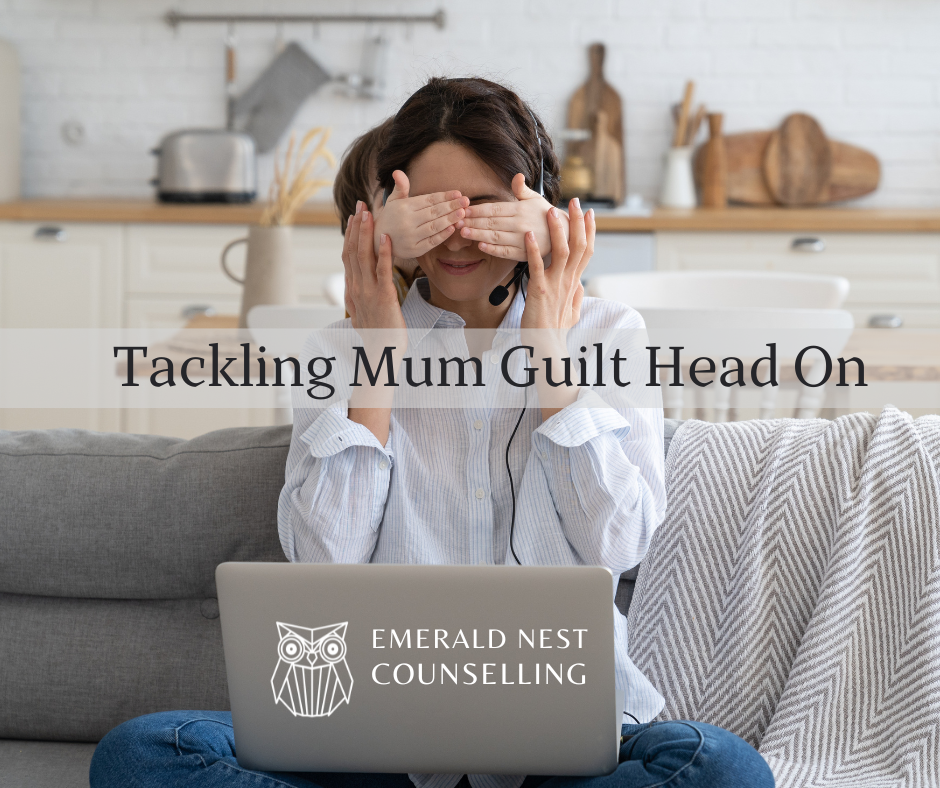Overwhelmed by Life? Goal Setting and Priorities.
Overwhelmed by Life? Goal Setting and Priorities
Feeling overwhelmed by the demands of life can be a common experience, especially for those juggling work, family commitments, and personal obligations. In counselling, clients have a valuable opportunity to clarify their goals and priorities to make a direct and immediate positive impact on their wellbeing. By working with a counsellor, individuals can identify the sources of stress and anxiety, create a plan for achieving a healthier work-life balance, and set achievable goals that lead to a more fulfilling and balanced life. This post will explore how counselling can empower clients to navigate these challenges with clarity and purpose, ultimately promoting their overall wellbeing and happiness.
The Role of Counselling in Overcoming Overwhelm
When you're feeling swamped by life's demands, counselling serves as a crucial resource for regaining control. In these sessions, counsellors provide a safe space to talk about your struggles and identify the specific factors that are causing you stress. Together with your counsellor, you can start to pinpoint what aspects of your life require immediate attention and which can be adjusted or set aside. This process is not just about reducing your to-do list—it's about aligning your daily activities with your larger life goals. Counsellors are trained to assist in this re-prioritisation, ensuring that the steps you take forward are in the right direction for your personal and professional growth.
The Importance of Setting Priorities
Setting priorities is fundamental to managing anxiety and stress effectively. When life's tasks pile up without a clear order of importance, it can lead to feelings of overwhelm and a sense that you're drowning in responsibilities. By establishing priorities, you effectively create a roadmap for tackling tasks that align with your values and goals. This helps in allocating your time and energy to where they will have the most impact, reducing the noise of less critical activities. Prioritising is not just about deciding what to do first; it's also about recognising what you can let go of or postpone without significant consequences. It encourages you to focus on quality over quantity, ensuring that your efforts are concentrated on the areas of your life that bring you the most fulfillment and success. In essence, setting priorities is about regaining control and finding a path to a balanced life.
The Correlation between Anxiety and Overwhelm
Anxiety and overwhelm often walk hand in hand, each fuelling the other in a continuous cycle. When you feel overwhelmed, it's usually a sign that you're facing more than you can handle emotionally or physically. This excess burden can trigger anxiety, as your mind struggles to find solutions to seemingly insurmountable problems. Conversely, anxiety itself can magnify feelings of overwhelm by causing you to overestimate the difficulty of tasks or underestimate your ability to handle them. The result is a heightened stress response that can affect all areas of your life, from your work performance to your personal relationships. Understanding this correlation is the first step in breaking the cycle. By addressing either anxiety or feelings of being overwhelmed, you begin to alleviate the other, creating a more manageable and healthier state of mind.
The Impact of Work-Life Imbalance
Work-life balance is crucial for maintaining mental health, but achieving it can be elusive. An imbalance here can be a significant stressor, leading to burnout and a drop in productivity both at work and home. When work demands encroach on personal time, it can erode relationships, personal wellbeing, and overall life satisfaction. This encroachment can create a vicious cycle where personal time is spent recovering from work stress rather than engaging in fulfilling or restorative activities. Moreover, the stress from an imbalance can manifest physically, with symptoms such as headaches, sleep disturbances, and a weakened immune system. Recognising the impact of work-life imbalance is an essential step in addressing the stressors in your life. It allows you to make informed decisions about setting boundaries and realigning your commitments with your personal priorities.
Setting Clear Goals
Setting clear goals is a powerful strategy in counselling to combat stress and anxiety. Clearly defined goals provide a sense of direction and purpose, making it easier to navigate through challenging periods. When you establish what you want to achieve, you can break down the path to these objectives into manageable steps, which can greatly reduce feelings of overwhelm. Goals act as signposts that guide your decisions and help you focus on what's truly important, rather than getting lost in distractions or unproductive activities. Moreover, each completed step towards your goals can offer a sense of accomplishment and boost your self-esteem, which is often eroded by chronic stress. Counselling can facilitate this goal-setting process by helping you to articulate your aspirations and create a realistic plan of action that honors your values and capabilities.
Prioritisation
Prioritisation in counselling is about empowering you to make informed choices about what deserves your time and energy. It's a practical approach that helps in differentiating between what's urgent and what's important. Counsellors guide clients to understand that not all tasks have equal weight and that it's okay to tackle high-impact activities first. This process of prioritisation can lead to a significant reduction in stress, as it clears the fog of overwhelm and provides a clearer vision for daily activities. You learn to set boundaries and say no to tasks that do not align with your priorities, which is a critical skill for maintaining mental health. Through prioritisation, counselling can shift the power balance back into your hands, allowing you to consciously choose how you engage with work, relationships, and personal growth.
Constructive Techniques for Stress Management
To maintain wellbeing beyond counselling, it's essential to have a toolkit of constructive techniques for managing stress. One effective method is mindfulness, which involves being fully present and engaged in the moment without judgment. This can help break the cycle of chronic stress by interrupting habitual thought patterns that lead to anxiety and overwhelm. Another technique is deep breathing exercises, which can provide an immediate calming effect by activating the body's relaxation response. Regular physical activity is also crucial as it can reduce stress hormones and trigger endorphins, improving mood and energy levels. Additionally, keeping a journal can serve as an outlet for processing emotions and tracking progress toward goals. By integrating these techniques into daily routines, you can build resilience against stress and promote a sense of peace and control in your life.
Balance Through Continual Goal-Setting
Continual goal-setting is key to achieving and maintaining a balanced life after counselling. It's a dynamic process that involves regularly assessing and adjusting your objectives to match your evolving needs and circumstances. By setting goals, you give yourself a target to focus on, which can prevent you from being sidetracked by less important tasks that contribute to stress and overwhelm. It's important to set both short-term goals, which can provide a sense of immediate direction and accomplishment, and long-term goals, which keep you aligned with your broader life vision. Remember to be flexible with your goals, allowing them to change as you grow and learn more about what brings you joy and fulfillment. This ongoing practice of goal-setting helps to ensure that your actions are intentional and that your life remains balanced and purposeful.










